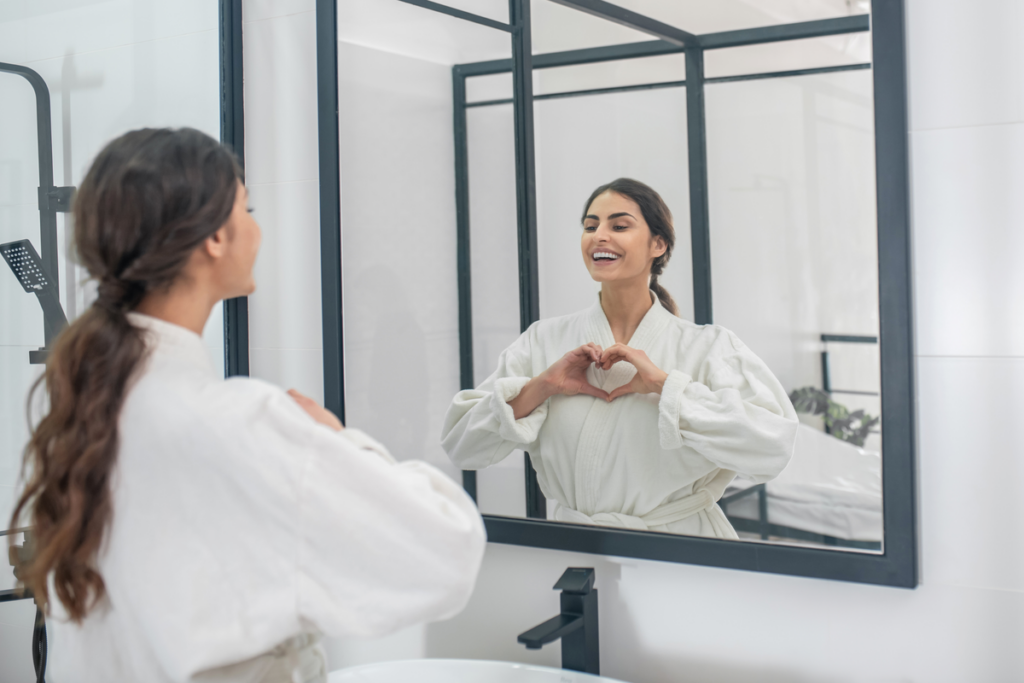The Antidote for Envy


Written and verified by the psychologist Valeria Sabater
The Spanish poet, Francisco de Quevedo once said that “envy is skinny, because it bites, but doesn’t eat.” In reality, we could give dozens of ingenious definitions for this emotion and they’d still fall short. That’s because there are few psychological experiences more harmful than suffering from envy. It’s also damaging to live in the shadow of an envious person.
From a mental health perspective, envy is promoted by social media. Indeed, these digital scenarios are the perfect breeding ground for comparisons. Millions of people look at these apps every day wanting to find out about other people’s lives and suddenly experiencing a feeling of lack in their own.
Gradually, their minds fill up with a whole assortment of discomforts. For example “Why can’t I have that body?” “It makes me angry that I’m not as talented as they are.” “Why haven’t I been lucky enough to achieve that lifestyle and have that kind of job/ home/ partner…?” These mental narratives are saturated with poison. Unsurprisingly, it doesn’t take long for hatred and unhappiness to appear.
However, although we might recognize this behavior in certain figures in the environment, none of us are immune to experiencing it at certain points in our lives. If you identify with these kinds of feelings, you’ll find it useful to know that there’s an ideal and effective strategy to quell this emotion.
Envy is one of the most complex emotions and also one of the least studied. Yet, few experiences are more recurrent in our daily lives.

Envy is counterproductive and affects mental health
Envy is a form of misery, anger, or discomfort that you experience for not possessing what another person has and what you desire. It shouldn’t be confused with jealousy. This is the emotion you feel when you’re faced with the possibility of losing someone with whom you have some kind of relationship.
For a long time, experts have tried to claim that there’s good and bad envy. That said, research conducted by New York University (USA) claims there’s only one type and it always forms part of unstable self-esteem.
Something that must be understood about this emotion is that, although it’s normal to experience it occasionally, it’s really counterproductive. It’s like a jolt, a wake-up call that puts you in a position of permanent dissatisfaction with your characteristics, achievements, possessions, and competencies.
As we mentioned earlier, we live in a present dominated by Instagram and TikTok. This means that envy is the seed of discomfort and causes conflict between users as well as mental health problems. In fact, research conducted by the University of Chongqing (China) links the use of social media with the experience of envy and mood disorders.
Behind envy usually lies shame and a lack of self-esteem. It’s a permanent feeling of not being up to the job and thinking that others are always luckier than us.
Being yourself is the real antidote to envy
Clearly, much more should be said about this emotion. Moreover, there’s a lot of negativity around it. For instance, we’re really quick to detect envious individuals, but rather slow to realize that, we too, feel this experience firsthand. Social comparison feeds envy and with it, feelings of inferiority, hatred of others, and suffering.
Today, many young people spend a great deal of their time in front of their cell phone screens, comparing themselves with others or longing for what they have. They want their physiques, millions of likes, and apparently perfect lives. This leads not only to feelings of contempt but also to the sinkhole of depression and rejection of their own bodies and existence.
Therefore, we must try and promote an antidote for envy. As a matter of fact, it consists of nothing more than being yourself and cultivating a firm, positive, and healthy identity. However, being yourself can be a challenge in a world of equal people. How can you achieve it? Here are some guidelines:
1. Clarify who you are
When you don’t know who you are, you take on other people’s identities. You imitate, get carried away, and assume abstract definitions of what it is to be happy, successful, and attractive. In fact, you become so detached from yourself that you become blurred by the masses, those who have no solid values or firm purposes, or convictions. From this position, it’s too easy to yearn for what others have, because you don’t recognize what you have.
To develop an antidote against envy think about the following:
- What you feel good about.
- What your values are.
- Your passions and what you like.
- The successes you’ve had in the past.
- Asking those who love you what they like best about you.
- Looking to the future and visualizing what you want and what your dreams are.
2. Think about what makes you unique and appreciate it
You may have spent a while without realizing what makes you unique, magical, and exceptional. But, that’s your advantage. Remember it. It’s your power. Indeed, you have potential and certain characteristics exclusive to you. Moreover, you have nothing to envy others for. Being yourself is an exercise in daring that’ll make you stand out from the rest. Exercise it without fear.
Envy is the opposite of self-knowledge and self-esteem. The less you appreciate yourself and the less you know yourself, the more you take notice of others to get an idea of your value. Therefore, you’ll always feel at a disadvantage.
3. Look after your self-esteem by avoiding social comparison
The antidote to envy is to be yourself and look after your self-esteem on a daily basis. One way of achieving this is by avoiding comparing yourself with others. Don’t pay any attention to others when evaluating yourself. You’ll only end up noticing what they have and you don’t. Only observe others with the aim of motivating and inspiring yourself.
Remember that social media is an ideal environment for comparisons. For this reason, you should stop following the kinds of figures that damage you. Look for people who motivate you and give you tools to feel better, those you can learn from. Not the ones you envy for their apparently ideal lives.

Final reflection
The antidote for envy is universal. But, all too often, we forget to direct our attention toward what we have, instead of toward what we lack. There’s also the danger of dissolving ourselves too much in external pressures, in cultural codes that produce suffering by setting standards that are unattainable or come at a really high cost. For instance, perfect bodies or success as a form of happiness.
It’s well worth remembering that the more you know yourself and dare to be yourself, the less you look at others to discover what you don’t have or lack. It’s well worth bearing in mind.
All cited sources were thoroughly reviewed by our team to ensure their quality, reliability, currency, and validity. The bibliography of this article was considered reliable and of academic or scientific accuracy.
- Cohen-Charash, Yochi & Larson, Elliott. (2016). An Emotion Divided: Studying Envy Is Better Than Studying “Benign” and “Malicious” Envy. Current Directions in Psychological Science. 26. 10.1177/0963721416683667.
- Liu, C., Ma, J. Social media addiction and burnout: The mediating roles of envy and social media use anxiety. Curr Psychol 39, 1883–1891 (2020). https://doi.org/10.1007/s12144-018-9998-0
This text is provided for informational purposes only and does not replace consultation with a professional. If in doubt, consult your specialist.








